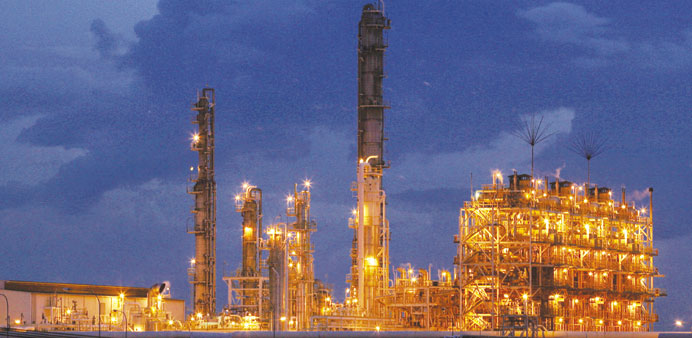A night view of the Petronas Petroleum Industry Complex in Kerteh, Terengganu, Malaysia. Asian spot LNG prices may have bottomed out this week as Japanese buyers stepped back into the market to prepare for peak summer demand.
Reuters/Singapore/London
Asian spot liquefied natural gas (LNG) prices may have bottomed out this week as Japanese buyers stepped back into the market to prepare for peak summer demand.
Prices for May delivery rose to around $16.50 per million British thermal units (mmBtu), from $15.70 per mmBtu last week.
Prices had fallen over the past month after topping $20 mmBtu due to limited spot supply and stockpiling after a cold winter.
“The Japanese showed interest in committing May cargoes at around $16.50 mmBtu,” said one Singapore-based trader.
Malaysia’s Petronas this week secured around 18 LNG cargoes of Nigerian origin from Portuguese utility Galp Energia in a tender, a source with knowledge of the matter said.
Earlier this month Galp launched the tender to sell up to 30 LNG cargoes from Nigeria’s Bonny Island liquefaction plant over a period of five years, with 4-6 cargoes offered each year.
The winners of the other Galp cargoes will be notified later yesterday, with details expected to filter out to the market over the weekend.
Sources differed in their opinions of how much winners paid for the cargoes, with estimates ranging from 13.5-14.3% of the price of a barrel of Brent crude oil.
At the upper end that puts the price somewhere around $15.30 per mmBtu given that Brent crude is currently trading at about $107 a barrel.
More pricing direction will likely come from the outcome of Australia’s North West Shelf tender award for several cargoes which closed last week, although the identity of the winning companies remains uncertain.
The results of the latest single cargo sell tender from Angola LNG also remained unclear, while re-exports from Spanish terminals are expected to add to the availability of supply on the global market.
Angola LNG last month issued three tenders, with some traders expecting it to do the same thing this month prior to a two-month maintenance outage planned from July.
Argentina has also issued a buy tender for two cargoes for delivery in May, traders said.
Galp Energia is seeking to swap six LNG cargoes from Bonny Island for pipeline gas routed to Portugal from southern France, traders said.
Japan’s JX Nippon Oil & Energy Corp said on Thursday it has signed a contract to buy 380,000 tonnes per year of LNG from the Malaysia LNG Dua project for 10 years from 2015.
Chinese LNG imports rose by a modest 6% in February to 1.50mn tonnes from the same month last year, although the volumes were likely affected by the Lunar New Year festival at the beginning of the month.
In the first two months, imports rose by 42% to 4.14mn tonnes. Imports are expected to climb by 37% this year to around 24.4mn tonnes and by another 19% to 29mn tonnes in 2015, according to Energy Aspects.
BG Group, one of the world’s foremost LNG trading firms, expects prices to stay robust this year and the current tightness to persist, with only a modest rise in LNG supply and strong increase in Chinese and South American demand.
“In 2014 we expect continued growth in demand for LNG from Asia, albeit at a slower rate than in previous years,” BG Group’s vice-president of global LNG, Andrew Walker, said in a report released this week.
“In 2014, we expect Europe will continue to balance the global LNG market by ceding volumes, but it’s not clear how much more can be diverted before we reach the minimum level of imports,” Walker said.
“The global LNG market will be tighter for longer than many assume, until the end of the decade at least,” he said.

